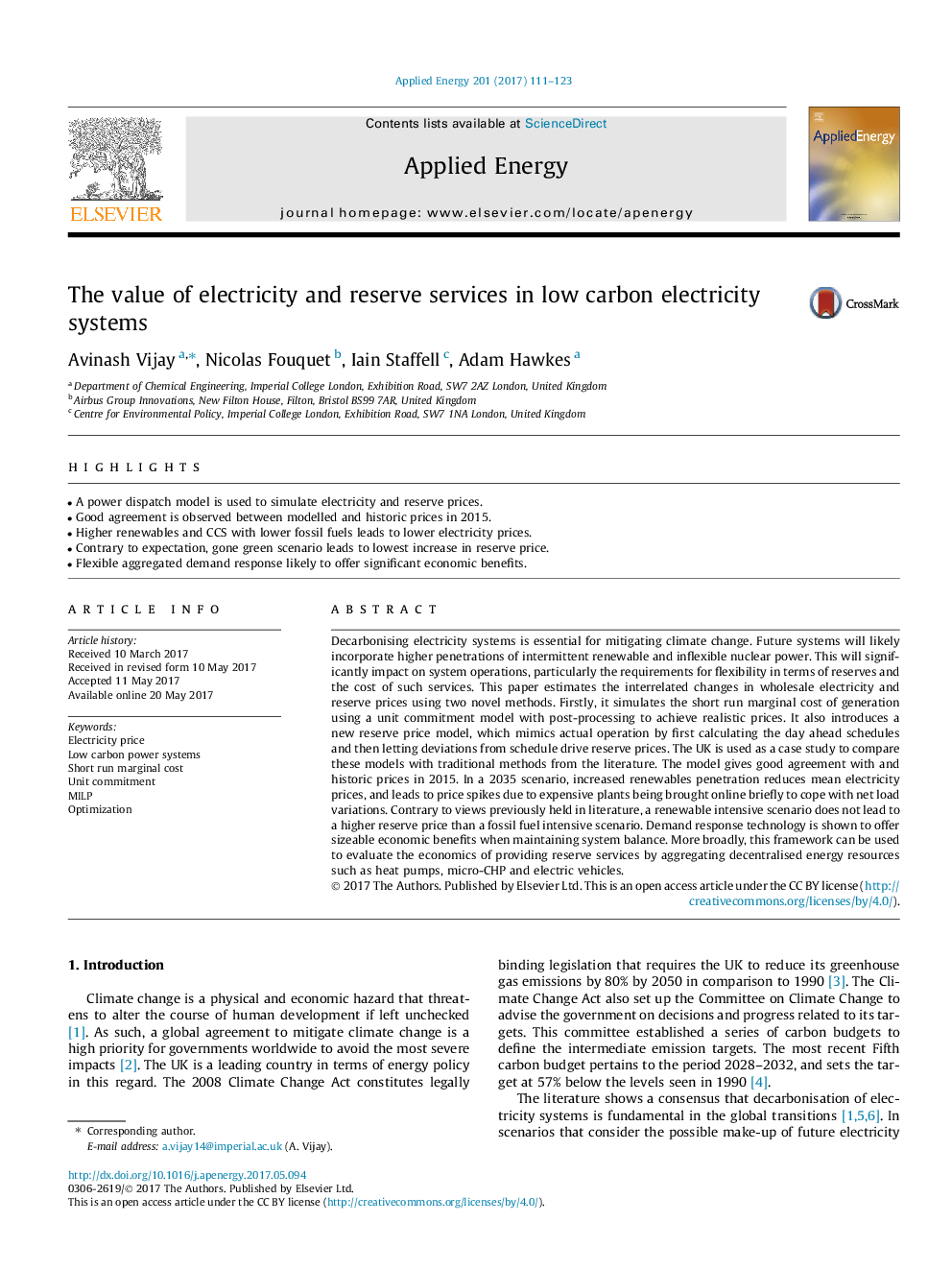| کد مقاله | کد نشریه | سال انتشار | مقاله انگلیسی | نسخه تمام متن |
|---|---|---|---|---|
| 4916006 | 1428089 | 2017 | 13 صفحه PDF | دانلود رایگان |
- A power dispatch model is used to simulate electricity and reserve prices.
- Good agreement is observed between modelled and historic prices in 2015.
- Higher renewables and CCS with lower fossil fuels leads to lower electricity prices.
- Contrary to expectation, gone green scenario leads to lowest increase in reserve price.
- Flexible aggregated demand response likely to offer significant economic benefits.
Decarbonising electricity systems is essential for mitigating climate change. Future systems will likely incorporate higher penetrations of intermittent renewable and inflexible nuclear power. This will significantly impact on system operations, particularly the requirements for flexibility in terms of reserves and the cost of such services. This paper estimates the interrelated changes in wholesale electricity and reserve prices using two novel methods. Firstly, it simulates the short run marginal cost of generation using a unit commitment model with post-processing to achieve realistic prices. It also introduces a new reserve price model, which mimics actual operation by first calculating the day ahead schedules and then letting deviations from schedule drive reserve prices. The UK is used as a case study to compare these models with traditional methods from the literature. The model gives good agreement with and historic prices in 2015. In a 2035 scenario, increased renewables penetration reduces mean electricity prices, and leads to price spikes due to expensive plants being brought online briefly to cope with net load variations. Contrary to views previously held in literature, a renewable intensive scenario does not lead to a higher reserve price than a fossil fuel intensive scenario. Demand response technology is shown to offer sizeable economic benefits when maintaining system balance. More broadly, this framework can be used to evaluate the economics of providing reserve services by aggregating decentralised energy resources such as heat pumps, micro-CHP and electric vehicles.
Journal: Applied Energy - Volume 201, 1 September 2017, Pages 111-123
